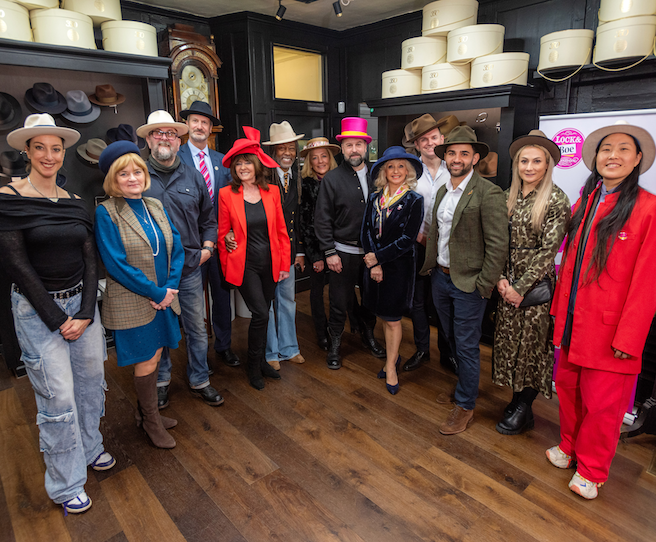Carswell Gould’s Managing Director tells us about the marketing lessons he’s learnt during the Covid-19 pandemic.
When the Covid crisis hit, businesses of all sizes had to do a complete U-turn on their marketing strategy. As it soon became clear that Covid wasn’t going anywhere, the way the business world began to view marketing started to change.
Today, we sit down with Carswell Gould’s Managing Director Gareth Miller to gain some insight into what the Covid-19 pandemic has taught him about marketing, now, and for the future.
How have you ensured that productivity doesn’t suffer when so many of your team have been working remotely?
GM: As well as making changes to the way we work and strategise our own services, how we come together and work as a team has taught us a lot about communication. During the pandemic, lounges and spare rooms have become office spaces, with our team often missing the opportunity to swing their chairs towards a colleague in need of a quick answer to a question. Of course, this has all been replaced with technology, such as Zoom.
Transitioning to a fully remote team showed us how much we rely on physical meetings with our team as a whole, as well as with our clients. Some things just feel far easier to explain when you’re sat across a table from one another.

It’s not always easy when you’re not in the same room together, but with many businesses ditching their office space (don’t worry, we haven’t, you can still find us here), knowing how to maintain ongoing communication with our team has proved crucial for productivity.
Thankfully, we are familiar with using Zoom to speak on various channels across different projects and have utilised this even further when working remotely with our team. It’s easy to get absorbed into working from home life, but we quickly learnt that staying in touch on an ongoing basis certainly benefited our wellbeing, productivity and team morale.
Have you started to approach your marketing and comms strategies differently since the pandemic?
GM: Definitely. It’s easy to do what you have always done, following a similar pattern or format when it comes to creating a marketing strategy. When hit with a challenge, such as the Covid pandemic, things don’t always follow in the same footsteps, and that’s to be expected. I believe we can all be more adaptable, and will be as a result of the pandemic.
What’s important is knowing how to react to new circumstances and therefore approach a new strategy, and it typically lies in the ability to go back to basics. Making changes to how we work allowed us to adjust to new ways of working, with more flexibility than ever before – and not just in terms of working remotely.
How could we possibly find the right comms strategy without first gaining an understanding of the recipient’s feelings? Well, we couldn’t. And so, we revelled in going back to basics and working from the ground up in order to respond to the current climate.
Would you say that your comms tactics have evolved since the Covid-19 pandemic began?
GM: The pandemic certainly threw a spanner in the works for the ‘usual’ marketing and comms strategy, since communication quickly changed as we entered into lockdown and we all faced uncertainty. While it didn’t necessarily mean that any existing strategies were made completely extinct, there was most definitely room to evolve our tactics in order to reach audiences and continue delivering value.
In a situation that was totally unknown to all of us, we switched our focus into re-framing what a brand offers in new ways that resonate with its audience. An important message we all quickly took on board was the need to stay visible – it was no good to pull the plug and ditch marketing budgets, but instead, we needed to adapt.

Which brands do you believe nailed their marketing during Covid?
GM: Those that didn’t fall off the face of the earth. While it may have felt challenging at first to continue their marketing efforts, those that kept going were the ones who maintained momentum. It was important for brands to tweak their offer during the pandemic in order to accommodate to changes we were (and still are) facing.
One of my personal favourites for visibility during the Covid-19 pandemic was Birds Eye’s ‘What’s for Tea?’ campaign.
How has the pandemic affected marketing budgets?
GM: When Covid first hit, many of us were unsure how things were going to go. Unsurprisingly, many marketing budgets were cut completely. As a business owner, that level of uncertainty was pretty scary, and incredibly daunting, especially when trying to market your business.
As we started to realise that Covid wasn’t going anywhere, we all had to adapt. It was completely unknown territory, but businesses have started to find new ways to deliver value according to what their customers are currently facing. For example, banks have allowed remote video calls for mortgage applications to keep things like that running smoothly.
Is there anything you believe marketers could do better in future?
GM: That’s a tough question. With the wealth of data that is available to marketers, many can become too reductionist and forget to look at the bigger picture. It’s important to start at the end and get a complete view of what the business is really trying to achieve. Start with strategy and then look at the tools and tactics that you have available to achieve your goals. Data is an important ingredient and will influence decisions but marketing will always be about making predictions and trying to influence human beings with real thoughts and emotions.
The benefit of working within a team of integrated marketing specialists is that we are able to put all the marketing ingredients together to achieve our clients’ aims, we’re not limited to the views of one discipline or sector, but many in-house marketers don’t have that luxury. So, marketers shouldn’t be afraid to ask for help. It can be lonely being a marketing director. Think about the value a team of fellow marketing experts can bring to your business and how they can work with you to help you achieve your goals.
If you have a view or a question about how the pandemic has affected marketing please feel free to get in touch.
Create a thriving remote work culture with these proven strategies
Uncover the key steps to building an effective remote work culture that supports employees, improves productivity and drives results.




